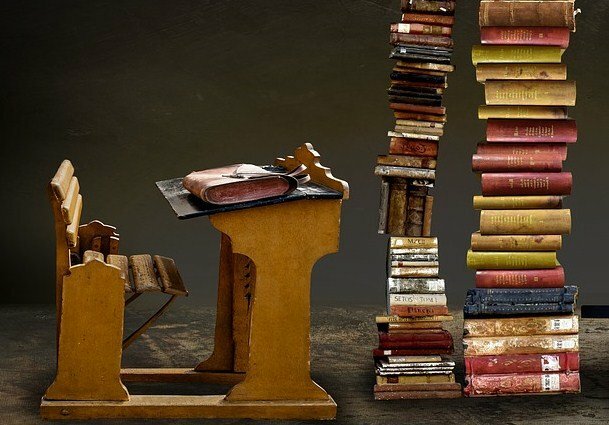The historicism It is a philosophical trend, which is inspired by the ideals of Leopold Von Ranke, who has considered reality as a product of a historical event. He believes that being is a special happening, or a temporary process that cannot be captured by reason.
He thinks that happening as history can make more use of spiritual science, and that, according to historicism, philosophy completes most of history. His task is to allow a theory of history to be made and he proposes that a systematic investigation of all historical facts be carried out.
Advertisements
This theory confirms that each person along with her actions is determined as part of the historical fluidity and holds that, in order to study history, it is necessary to learn all the factors that can influence the life of being human.
In this article you will find:
Objective of historicism
This theory has the objective of conducting a deep systematic investigation of historical events, which can be artistic, political, scientific, technical or religious, all of them considered as historical facts due to their great importance in the life of the man.
Advertisements
He argues that there should not be a historical theory with previous representations that prevail over the past. Leopold Von Ranke requests that the past is the one that should speak, since he reveals a philosophical method that is based on the use of official written documents.
Ranke during the year of 1824, published the book Histories of the Roman and Germanic peoples, gift was highlighted by the type of historicist history for the first time and where the ideological system of that new type of story.
Advertisements
Within the content, the conflict between the Spanish and French monarchy due to the territories of Italy, Ranke determines that Europe had an emergence similar to that of the Roman peoples and Germanic.
The most interesting and important thing about this book is the approach and the method that determines the subject. That is why he published an appendix where he provides his methods and criticism of him to other authors who have previously written about it. same story, since Ranke was convinced that you have to go to the documents to be sure of what has happened rurally.
Advertisements

Historicism classes
Due to historical reality, this theory contains the following classes:
Advertisements
The cosmological
Imagine the entire cosmos as historical, influenced by the evolutionary mode.
The anthropologist
He admits that the human being is a historical being, similar to Marx's materialism, he is influenced by the model of the historical sciences.
Types of historicism
This philosophy is classified into two types, as a treatment of the notion of historicism:
- The ontological: It is responsible for analyzing historicity as a component of reality.
- The epistemological: Promotes that the understanding of reality is made through the historical.
Criticisms of historicism
It can be said that this theory has received innumerable criticisms by various authors. Among them are:
Karl Marx
Who maintains that the circumstances are not those that determine the human being and his behavior, but quite the opposite.
Karl Popper
He also made criticisms in his books The Open Society and His Enemies and The Poverty of Historicism, in them he exposes that in this philosophy, the human being can being modeled due to his circumstances, he does not have any kind of responsibility in relation to his actions, which is of great benefit to the systems totalitarians.
Leo Strauss
For him, according to his point of view, this theory meant the intellectual impossibility of carrying out the study of the injustice and in the same way, revitalize historical events such as tyranny, arguing them through their context Social.
Main exponents of historicism
Among the main exponents, writers such as Benedetto Croce, who stood out as writings, historian and politician, in addition to being a great influence on authors such as Giovanni Gentile and Antonio Gramsci.
According to Croce's theory, history also has a fair epistemological horizon, since it is contemporary knowledge, which means that history is not the past. Historiography is also very useful in understanding the deep rationality of the spiritual process, it is not about abstract knowledge, but rather about experiences and facts precise.
Giambattista Vico, philosopher of history and Neapolitan lawyer is another outstanding author, who was noted by his concept that truth is the result of doing. All the doctrine and point of view of him in relation to history and knowledge, are elaborated in a opponent of Cartesianism and the conception of time he devoted to the physics of science paradigmatic.
His approach highlights that the human being can have knowledge of the product of doing with property, because it is sustained by nature, however, it can be thought but not understood. Only God who has made everything can fully understand everything.
Influence of historicism in the history of thought
The differences and the relationships that exist between the historical-social sciences and the natural sciences, the participation of the values that influence the actions of the human being or the critical analysis of cultural production, are some of the many essential contributions of this philosophy within the history of the thought.
In the same way, this theory has managed to contribute to the critical review regarding the historical reality with highly salient derivations in politics, anthropology or sociology.
The question of whether this theory necessarily entails relativism or is the only way to avoid it, is placed within an epistemological state of great relevance. In this sense, thinkers such as Karl Popper, the philosopher of science, have understood that historicism is the current that defends the existence of historical laws that define the end of all social and political.


